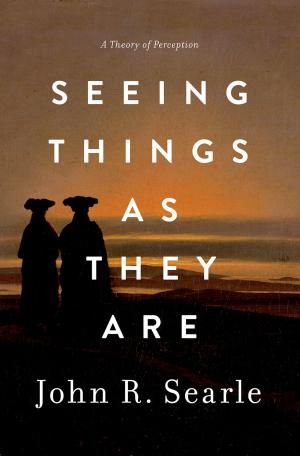BlindSpots
21 Good Reasons to Think before You Talk
Nonfiction, Health & Well Being, Psychology, Social Psychology, Religion & Spirituality, New Age, New Thought, Philosophy, Mind & Body| Author: | Christian de Quincey | ISBN: | 9781620554470 |
| Publisher: | Inner Traditions/Bear & Company | Publication: | August 17, 2015 |
| Imprint: | Park Street Press | Language: | English |
| Author: | Christian de Quincey |
| ISBN: | 9781620554470 |
| Publisher: | Inner Traditions/Bear & Company |
| Publication: | August 17, 2015 |
| Imprint: | Park Street Press |
| Language: | English |
Examines 21 unquestioned assumptions that cloud our collective consciousness
• Reveals faulty thinking and conceptual blindspots that distort beliefs in science, philosophy, and spirituality--from “the universe exploded from nothing in a Big Bang” to “we create our own reality”
• Explains how “thought viruses” spread as we use these clichéd assumptions in our daily communications
We live in a world filled with clichés--convenient assumptions and unquestioned conclusions that many of us use without giving them a second thought. We all spread these “thought viruses,” infecting everyone we come in contact with. But many of these blindspots in how we think about ourselves and the world do not withstand rigorous scrutiny--or even casual scrutiny in some cases--yet they fall out of the mouths of scientists, religious teachers, journalists, and authors with dumbfounding frequency.
Over the years philosopher Christian de Quincey spotted these cognitive gremlins in books, blogs, websites, TV shows, movies, classrooms, and casual conversations--and he wondered: Why do so many people speak before thinking, spreading ideas that make no sense, yet fool us into thinking they do? How did these unquestioned beliefs about life, space, time, energy, consciousness, evolution, artificial intelligence, and even God take hold in our collective consciousness?
In this book, de Quincey deliberately provokes and illuminates the dark side of jumping to conclusions, casting a skeptical eye on 21 beliefs that keep science, philosophy, and spirituality in the dark--from “the universe exploded from nothing in a Big Bang” and “we create our own reality” to “nobody knows what consciousness is” and “everything is energy.” These ideas distort and block our understanding and openness to important questions about life, the universe, mind, matter, God, and the miraculous.
By exposing these thought viruses that take our minds hostage when we fail to think things through, de Quincey aims to help change the way we think not just about thinking but also about how we live our lives, interact with others, and contemplate the world around us.
Examines 21 unquestioned assumptions that cloud our collective consciousness
• Reveals faulty thinking and conceptual blindspots that distort beliefs in science, philosophy, and spirituality--from “the universe exploded from nothing in a Big Bang” to “we create our own reality”
• Explains how “thought viruses” spread as we use these clichéd assumptions in our daily communications
We live in a world filled with clichés--convenient assumptions and unquestioned conclusions that many of us use without giving them a second thought. We all spread these “thought viruses,” infecting everyone we come in contact with. But many of these blindspots in how we think about ourselves and the world do not withstand rigorous scrutiny--or even casual scrutiny in some cases--yet they fall out of the mouths of scientists, religious teachers, journalists, and authors with dumbfounding frequency.
Over the years philosopher Christian de Quincey spotted these cognitive gremlins in books, blogs, websites, TV shows, movies, classrooms, and casual conversations--and he wondered: Why do so many people speak before thinking, spreading ideas that make no sense, yet fool us into thinking they do? How did these unquestioned beliefs about life, space, time, energy, consciousness, evolution, artificial intelligence, and even God take hold in our collective consciousness?
In this book, de Quincey deliberately provokes and illuminates the dark side of jumping to conclusions, casting a skeptical eye on 21 beliefs that keep science, philosophy, and spirituality in the dark--from “the universe exploded from nothing in a Big Bang” and “we create our own reality” to “nobody knows what consciousness is” and “everything is energy.” These ideas distort and block our understanding and openness to important questions about life, the universe, mind, matter, God, and the miraculous.
By exposing these thought viruses that take our minds hostage when we fail to think things through, de Quincey aims to help change the way we think not just about thinking but also about how we live our lives, interact with others, and contemplate the world around us.















